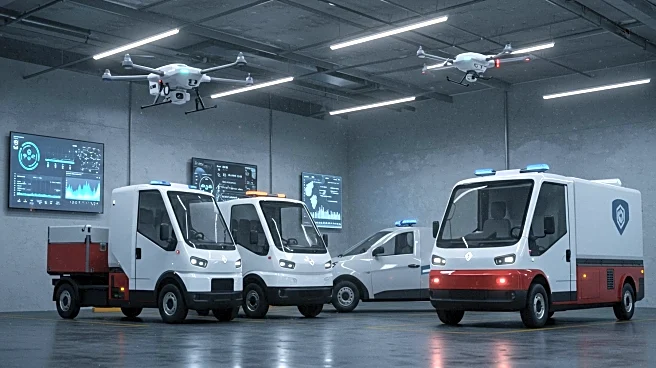What is the story about?
What's Happening?
In the current global economic climate, many companies are adopting a 'wait and see' approach, delaying significant investments due to economic slowdowns, inflation, and tariff changes. This hesitation is particularly costly for transportation fleets, where outdated equipment leads to increased maintenance costs and safety risks. The concept of a 'hesitation tax' highlights the financial penalties of delaying fleet upgrades, as older vehicles incur higher operational expenses. Additionally, geopolitical factors such as trade tensions and tariffs on imported materials further increase the cost of new equipment, making future investments more expensive. Modernizing fleets is essential not only for cost efficiency but also for safety, as newer trucks come equipped with advanced technologies that enhance operational safety and reduce accidents.
Why It's Important?
The hesitation to modernize fleets has significant implications for companies in the transportation sector. Delaying upgrades results in higher future costs and compromises safety, which can affect a company's competitive edge and reputation. Advanced safety technologies in modern trucks, such as predictive cruise control and adaptive braking, are crucial for accident prevention and operational efficiency. Investing in fleet modernization can lead to reduced accident costs, lower insurance premiums, and substantial fuel savings, providing a strong return on investment. Companies that prioritize modernization can gain a competitive advantage by ensuring operational resilience and fulfilling their responsibility to deliver products efficiently and safely.
What's Next?
Organizations are encouraged to overcome the 'hesitation tax' by considering flexible leasing options and strategic multi-year procurement plans. These approaches can minimize upfront capital expenditure and provide access to modern equipment, ensuring compliance with evolving regulations. By shifting to an unbundled expense structure, companies can better evaluate finance types and maintenance programs, optimizing fleet efficiency. The restored 100% bonus depreciation rate offers additional tax benefits, making leasing a more attractive option for many companies. Accelerating fleet modernization is not just about avoiding future costs; it's about seizing opportunities for competitive advantage and operational resilience.

















